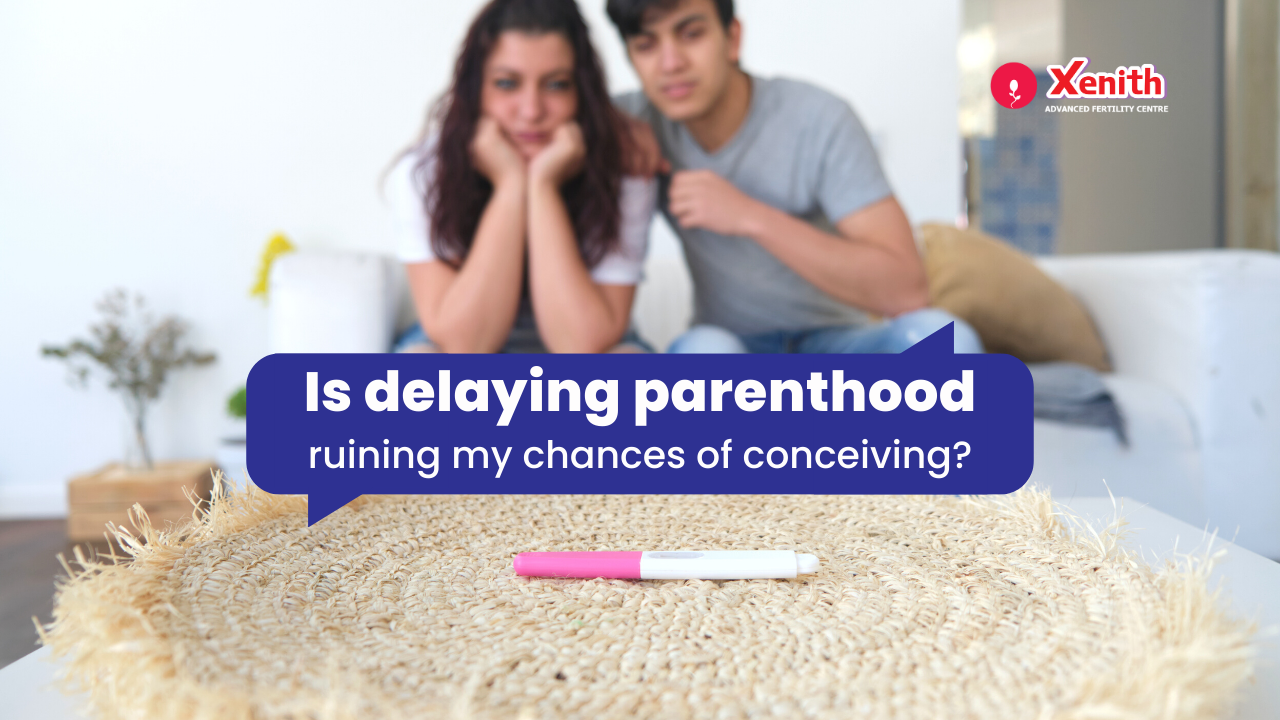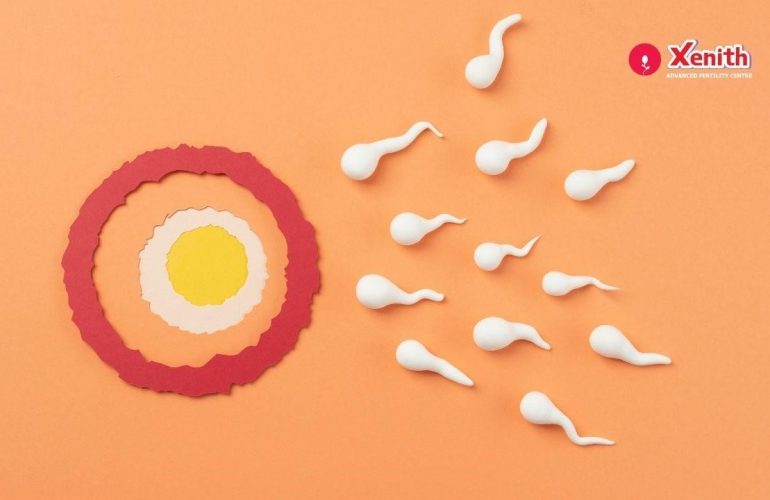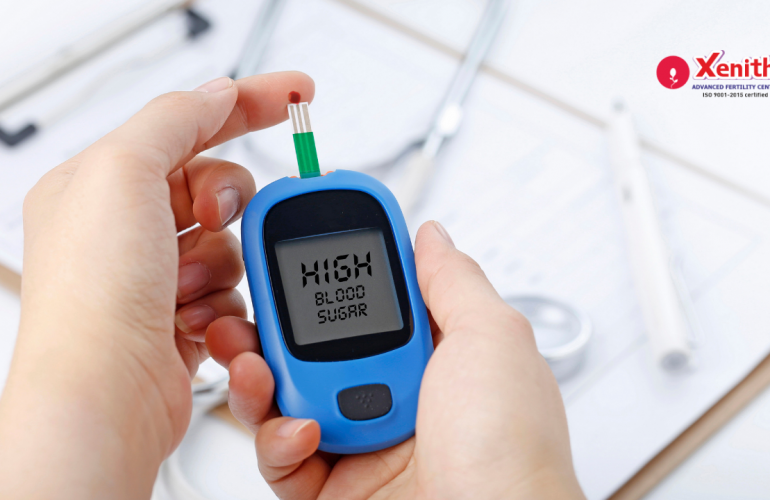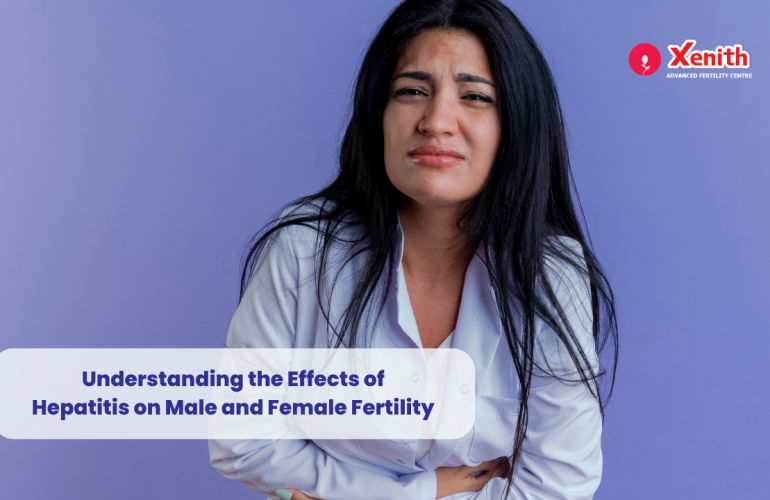More and more people are delaying parenthood for various reasons like pursuing their careers, becoming financially stable, finding the right partner or just wanting to enjoy life just a little more before having kids and settling down. Assisted reproductive technologies like in vitro fertilization (IVF) has become more accessible to the general population and it has helped people dealing with infertility become parents. So, you might think that due to modern technological advances, it will be easier to conceive at a later age and so there’s nothing to worry about. However, the sad truth is that it becomes more and more difficult to conceive with the increasing age of both men and women. There might also be the misconception that the biological clock is ticking only for women but did you know that men also have a biological clock?
A woman is born with a finite number of eggs to last her life. As she ages, this quantity of eggs decreases until there’s no more eggs left leading to menopause. The quality of the eggs also decreases with age. Both these factors would make it harder to conceive and could lead to issues with fertility if she delays parenthood till a later age. The decline in fertility begins to occur around age 30 and becomes more pronounced after around age 35. (1)
Women are not the only ones seeing declining fertility over time. Men’s fertility begins declining in their 40s although the decline may not be as dramatic as the female. Even though men produce sperm throughout their lives, the sperm’s quality, quantity, and motility decreases with age. There could also be hormonal imbalances which could affect sperm production. Ideally sperm has a smooth oval head, a midpiece and a long tail and this morphology becomes more abnormal with age. There is also a higher risk of the sperm carrying damaged DNA with age. As men age, they could also encounter more health issues like high blood pressure and having to take certain medications which could in turn affect fertility.
What are the risks?
With increasing age in both men and women, the time to conception increases, as well as increased miscarriages, higher risk of complications in birthing like stillbirth, premature birth, lower birth weight etc.
With increasing age in women, the risk increases of various complications in the woman like gestational diabetes, c-sections, placenta previa where the placenta could block part of or the whole cervix .There is also a higher risk of chromosomal abnormalities.
With increasing age in men comes hormonal imbalances and increased risks like sexual dysfunction like decreased libido, erectile dysfunction, where there is difficulty in getting and keeping an erection, or issues with ejaculation in men.
Factors influencing fertility
There could be many factors which could influence fertility in men and women like age, hormonal imbalances, health issues, medications, obesity, lack of regular exercise, alcohol consumption, smoking, cancer and its treatment, genetics, stress, depression, lack of sleep, diet, etc
Healthy habits for fertility
Certain lifestyle habits could definitely affect fertility. While a woman cannot do anything to increase her egg numbers, she could make some lifestyle changes to improve the egg quality. Similarly, men too could make some lifestyle changes to improve their sperm. Some of these lifestyle changes could include that you make sure you follow a balanced diet like the Mediterranean diet, do regular exercise, get enough sleep, stop smoking and drinking, cut back on caffeine, avoid or try to remove stress. You could also go for a regular medical checkup to your doctor and speak to your doctor about the effects of certain medications you are taking and how it could affect fertility. Now that you know the risks of delaying parenthood, you could also try to preserve your fertility by freezing your sperm, egg or the fertilized embryo so that you have better chances of having a healthy pregnancy later on when you are ready to take on parenthood. If you have failed to conceive after having regular unprotected sex for more than a year if you are younger than 35 or for more than 6 months if you are older than 35, then it might help to visit your doctor and try to find out any reasons why you have not been able to get pregnant. You could look into assisted reproductive technologies like IVF depending on the cause of infertility where the mature egg is retrieved from the woman’s ovaries, fertilized with sperm in a laboratory setting and the resulting embryo is transferred back into the woman’s uterus for implantation which if successful could lead to pregnancy. The experts at Xenith Advanced Fertility Centre have had a lot of experience in dealing with various infertility related issues and could help you fulfil your dreams for parenthood. Feel free to consult them if you need answers to your doubts and questions.




